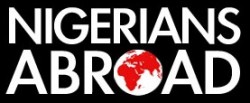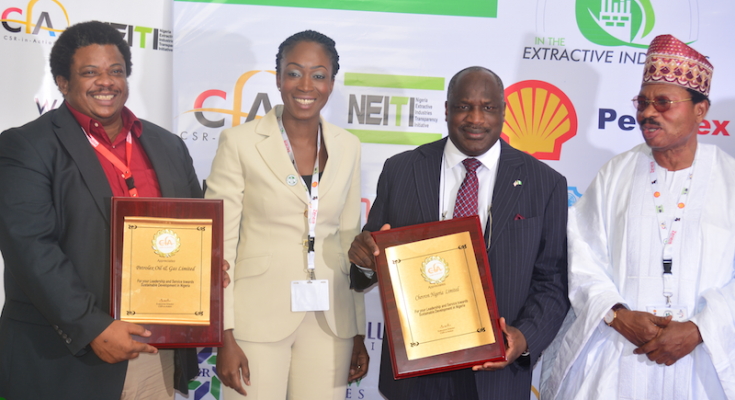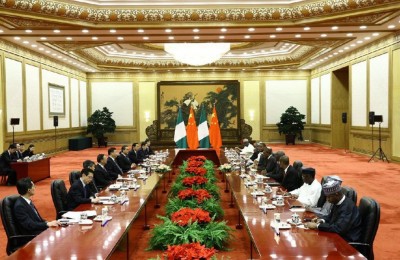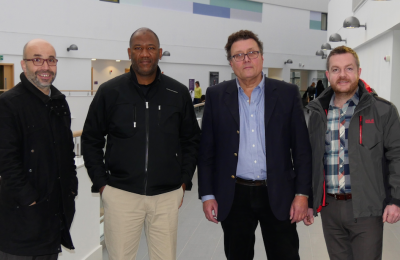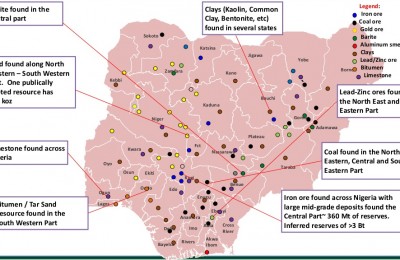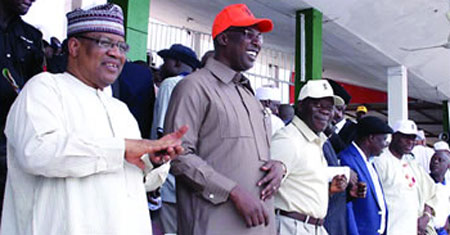It was a convergence of national leaders, public sector officials, industry captains from the private sector, and civil society representatives at the 4th Sustainability in the Extractive Industries (SITEI) conference. The event, which held on Thursday, 19th November, 2015 at the NAF Conference Centre Abuja, Nigeria was organized by CSR-in-Action – Nigeria’s premier business and ethical networking platform and consultancy for sustainability – in partnership with the Nigerian Extractive Industries Transparency Initiative (NEITI) – the Nigerian Government Chapter of the global Extractive Industries Transparency Initiative (EITI), and played host to the Minister of State for Solid Minerals, Abubakar Bawa Bwari.
Over the years, SITEI has provided a platform for progressive thinkers and thought leaders to discuss pertinent issues that affect the extractive industries in Nigeria and ultimately, the economy; and this year was no different. Key stakeholders, therefore, came together to discuss the boundless, yet untapped, potential that evidently lies fallow in these industries – especially with regard to the country’s abundance of mineral resources – in a bid to proffer actionable solutions in line with the theme, Unlocking the Hidden Potential in the Extractive Industries.
The resulting communique from deliberations was immediately read out to all stakeholders at the end of the conference, and highlighted major issues as itemized by both panelists and delegates. The communique was compiled by another important partner to the event, PwC Nigeria. It was once again established that Nigeria has the manpower to foster growth in the mining sector with over 20,000 geologists produced over the last ten years; and coupled with the fact that there is real interest from the private sector as well as foreign investors to develop the industry, it was made apparent that so little has been done so far.
Some of the problems hampering the development of the mining sector were thus identified and attributed to issues like political uncertainty, which is characteristic of the current Nigerian political landscape where a change of hands comes with a complete overhaul in policies; lack of incentives to encourage the private sector where they are crippled by a disabling economic environment; insufficient and poor data to give confidence to reliable investment, which could be attributed to the continued and complete neglect of the mining sector over the years; limited access to capital especially when you consider the long wait for a return on investment; inaccessibility of mining sites due to the poor infrastructure that affects many other industries; and lack of resources required to add value to mined minerals before exportation, putting Nigeria under the same constraint as with oil where the unrefined product is exported and the refined product is once again imported at exorbitant rates.
The contributors highlighted some key recommendations to truly harness the potential in the mining sector including; the need for the immediate development of mining ports across the country; increased accessibility and awareness of the funds available to the extractive industries; the development and enforcement of a legal, regulatory and investment friendly framework that supports the private sector and will encourage foreign investment; aggressive data collection, analysis and dissemination to showcase the opportunities in the sector; increased efforts to promote accountability through a transparent reporting process driven by institutions like NEITI; the need to readdress the existence of mineral resources on the exclusive list, which poses the question of the efficacy of resource control over the derivation principle and the designing of an inclusive Environmental Impact Assessment Act to take care of host communities.
In furtherance to the recommendations made, Amos Gagar, Director PwC, said, “The process has painstakingly captured the views of speakers and delegates, and a working group will be immediately set up to synthesize the recommendations and propagate key actionable solutions. We eagerly look forward to presenting a progress report at the conference next year.”
Furthermore, the Acting Executive Secretary NEITI, Dr Orji Ogbonnaya Orji, during his presentation said “It is important to pursue an inclusive collaborative effort that will shift attention to unlock the potential in the solid minerals sector.” He went further to advocate for an inter-agency collaboration between legislature, civil society, companies and the government to deliver better governance and reform for the extractive sector.
Chief Executive and Founder of CSR-in-Action and Convener of the epoch event, Bekeme Masade, capped it off by also looking ahead to the tangible outcomes of the conference which are expected to make maximum impact on the Nigerian economy. She said, “The working group is the most critical aspect of SITEI. As with every conference, the tangible actionable outcomes form the basis of engagement to achieve tangible results between now and the next conference, and we are more than ready to hit the ground running.” The trio of CSR-in-Action, NEITI and PwC will be co-chairing a SITEI working group to drive advocacy for matters that will lead to Nigeria sustainably acquiring the estimated annual $100bn opportunity. The Ministry of Solid Minerals pledged to support the activities of the group.
Sponsors of the event, included Shell, Chevron, Zone 4 Energy, Petrolex, Blue Bridge Mineral Resources, Zenera Consulting and PwC.
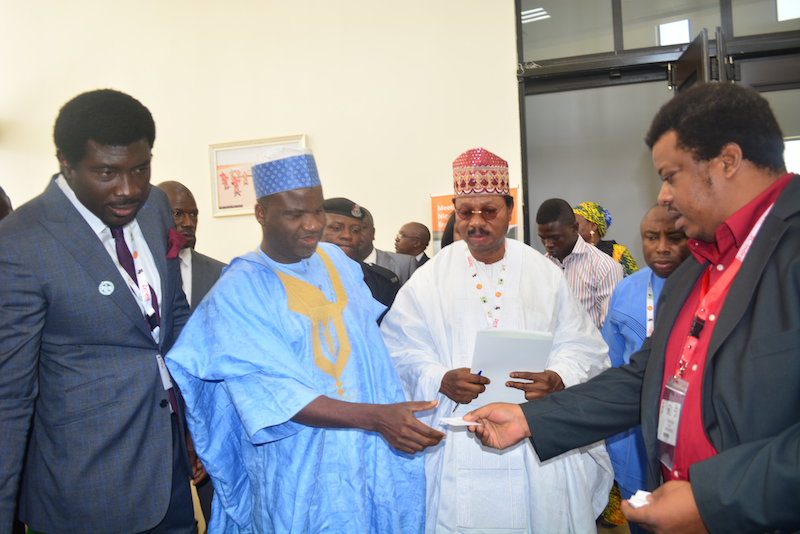
Mr Meka Olowola, Managing Partner, Zenera Consulting; Hon. Abubakar Bwari, Minister of State for Solid Minerals; Prof Wale Omole, Chairman, Board of Trustees, CSR-in-Action and Mr Kayoko Adelaja, Executive Director/Chief Operating Officer, Bluebridge Minerals at 4th edition of the Sustainability In The Extractive Industry (SITEI) conference in Abuja.
